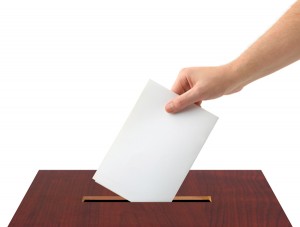 By Steve Brawner, © 2018 by Steve Brawner Communications, Inc.
By Steve Brawner, © 2018 by Steve Brawner Communications, Inc.
You’re probably well informed about the Supreme Court seat that’s already been filled, but not so much about the one where you still have a say. Let’s start fixing that.
The one that’s filled will be occupied in Washington, D.C., perhaps for 30 years, by Justice Brett Kavanaugh. Regardless of what you think about it, it’s done.
The one you still can influence will be decided Nov. 6. That’s when Arkansans will vote to re-elect Arkansas Supreme Court Justice Courtney Goodson, or replace her with her opponent, David Sterling.
This race, of course, is not nearly as riveting as the Kavanaugh hearings. The winner will receive an eight-year term, not a lifetime appointment. His or her rulings will not change America.
But they could have a big effect on Arkansas. For example, the Arkansas Supreme Court became the watchdog over the state’s schools through the long-running Lake View school funding case. The state has spent billions on public schools, making them the top priority over all other needs, because courts determined that schools must be “adequate” and “equitable.” If you have had a child or grandchild in school, that case has directly affected you. It also still affects every other state policy. Those include the taxes you pay, and the money the state spends for human needs, colleges and universities, highways and prisons.
But time has passed, Lake View is becoming a fading memory, and the funding increases enacted by the Legislature have shrunk. That means it’s time for another school funding lawsuit. Notably, none of the justices who participated in the Lake View case are still on the court.
Back to Goodson and Sterling. Goodson is the one with a judicial track record. She has been on the Supreme Court since winning election in 2010 at age 37. Despite having only two years’ experience as a judge, she won almost 58 percent of the vote against a more experienced candidate.
At the time, her name was Courtney Henry. As originally reported by the Arkansas Democrat-Gazette, she and her husband divorced after the election. That same year, she accepted almost $100,000 worth of gifts from John Goodson, a donor and big-time class action trial lawyer from Texarkana, whom she married in 2011. She also accepted a $50,000 trip to Italy from another donor, attorney W.H. Taylor.
I hate to bring up that stuff, but it’s not just personal information. She rules on issues affecting trial lawyers while married to a trial lawyer, though she says she recuses from cases involving him. She lost a race for Supreme Court chief justice two years ago after outside political groups reminded voters of her personal situation in ads and mailers. The issue came up again earlier this year, when she placed first in a three-way race for re-election, with Sterling placing second and qualifying for the runoff. It will surely resurface in the closing days of this campaign.
As a justice, her rulings and opinions have been middle of the road. She disappointed the business community in 2011 by writing an opinion striking down the state’s limits on punitive damages in lawsuits.
Sterling has no judicial experience. He’s an attorney and the Department of Human Services’ general counsel. Four years ago, he lost to Leslie Rutledge in the Republican primary race for attorney general. While judicial candidates are officially nonpartisan, he’s made it clear he’s running as a Republican. He’s made many appearances before Republican audiences, and he has benefitted from heavy spending by outside conservative groups.
We can expect he’d be a conservative, pro-business and pro-big business judge, but we can’t know if he would be an effective, fair, impartial one until he puts on the black robe.
To sum it up, Goodson is the experienced moderate with some inescapable personal baggage. Sterling is the inexperienced conservative.
One other thing. Goodson is one of four females on the seven-member court. All seven members are white, of course, which hopefully will change someday soon. But that’s a subject for another column, for another election.
I think it is important to note that Sterling is receiving tons of “dark money” That money is not usually available to candidates unless they have made promises that would question their ability to be impartial.